Related Research Articles
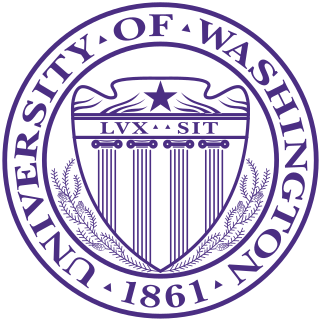
The University of Washington is a public research university in Seattle, Washington, United States. Founded in 1861, the University of Washington is one of the oldest universities on the West Coast of the United States.

The Asian American Journalists Association (AAJA) is a 501(c)3 nonprofit educational and professional organization based in San Francisco, California with more than 1,500 members and 21 chapters across the United States and Asia. The current president is Washington Post reporter Nicole Dungca. The executive director is Naomi Tacuyan Underwood.
KCTS-TV is a PBS member television station in Seattle, Washington, United States, owned by Cascade Public Media. The station's studios are located at Broadway and Boren Avenue in Seattle's First Hill neighborhood, and its transmitter is located at 18th Avenue and E. Madison Street on the city's Capitol Hill.
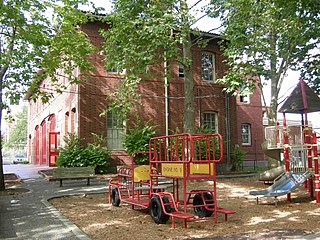
The Central Area, commonly called the Central District or The CD, is a mostly residential district in Seattle located east of downtown and First Hill ; west of Madrona, Leschi and Mt. Baker; south of Capitol Hill, and north of Rainier Valley. Historically, the Central District has been one of Seattle's most racially and ethnically diverse neighborhoods, and was once the center of Seattle's black community and a major hub of African-American businesses.

Tyee High School, formerly Tyee Educational Complex, is a public high school campus located in SeaTac, Washington, United States. It was founded as Tyee High School, a single public high school, in 1962. It is operated by the Highline School District.
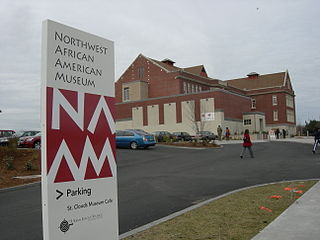
The Northwest African American Museum (NAAM) serves to present and preserve the connections between the Pacific Northwest and people of African descent and investigate and celebrate Black experiences in America through exhibitions, programs and events. The museum is located in Seattle, Washington's historically African-American Central District neighborhood in the former Colman School, with official status as a City of Seattle landmark. The building also contains 36 units of affordable housing.
Tasveer is a Seattle-based South Asian social justice arts non-profit organization. It was founded by Rita Meher and Farah Nousheen in 2002.
The Cascade PBS newsroom, formerly Crosscut.com, is an American nonprofit news website based in Seattle. In contrast to traditional news organizations, the website mainly engages in analytic journalism. It merged with local PBS member station KCTS-TV in 2015, with both unifying under the Cascade PBS name in 2024.
The Robert C. Maynard Institute for Journalism Education, is an American non-profit organization that trains journalists to become investigative journalists, editors and newspaper managers and media entrepreneurs. The organization seeks to increase diversity, equity and inclusion in newsrooms with the aim of diversifying coverage of news itself, creating a more complex and representative picture of the American news landscape. MIJE has graduated over 1,000 students from its various education programs, and has educated media organizations including the Associated Press and CNN on diversity, equity and inclusion through its Fault Lines program.
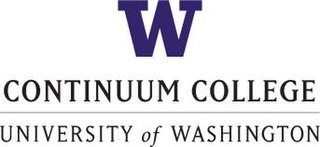
The University of Washington Continuum College was founded in 1912. The Continuum College is the continuing education and professional development unit of the University of Washington (UW), in Seattle, Washington.
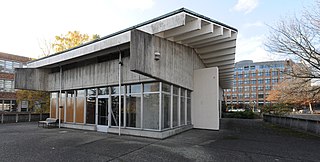
The More Hall Annex, formerly the Nuclear Reactor Building, was a building on the campus of the University of Washington (UW) in Seattle, Washington, United States, that once housed a functional nuclear research reactor. It was inaugurated in 1961 and shut down in 1988, operating at a peak of 100 kilowatts thermal (kWt), and was officially decommissioned in 2007.

Gender Justice League (GJL) is an advocacy group for transgender, genderqueer, nonbinary, and gender non-conforming individuals in Washington State in the United States. The group advocates for transgender legal, political, and medical rights as well as participating in protests, awareness raising, and fundraising events.
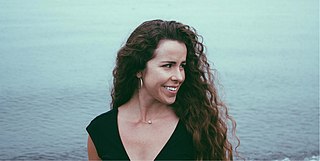
Kristen Millares Young is a Cuban-American investigative journalist, essayist, and novelist. Subduction, her first novel, was released in 2020.
C. Davida Ingram is a conceptual artist specializing in gender, race and social practice. Her art explores desire, space, time and memory, while questioning 21st century black female subjectivity. She is also a public speaker and civic leader. She received the 2014 Stranger Genius Award in Visual Arts. In 2016 she was a Kennedy Center Citizen Art Fellow, a finalist for the 2016 Neddy Arts Award, and 2018 Jacob Lawrence Fellow. Ingram, along with Prometheus Brown of Blue Scholars, and Tony-nominated choreographer and director, Donald Byrd at the 2016 Crosscut Arts Salon: The Color of Race. In 2017 she was featured in Seattle Magazine's Most Influential Seattleites of 2017. In the same year she received the Mona Marita Dingus Award for Innovative Media.

Benjamin Danielson is a pediatrician and clinical Professor of Pediatrics at the University of Washington School of Medicine. Throughout his time as a pediatrician, Danielson has facilitated the creation and development of diversity programs and contributed actively to governmental policy as a member of several health boards. Danielson was the medical director of the Odessa Brown Children's Clinic from 1999 to 2020, where he then resigned and spoke out about prevalent institutional racism and a resistance to change from hospital leaders. In September 2021, it was announced that Danielson would be directing a new program, Allies in Healthier Systems for Health & Abundance in Youth (AHSHAY) to help address and prevent youth incarceration.

A "Black Lives Matter" street mural was painted in Capitol Hill, Seattle, in the U.S. state of Washington in June 2020. Maintained by the Seattle Department of Transportation, the artwork has survived longer than many Black Lives Matter street murals across the United States.

Lumber Yard Bar is a gay bar in White Center, in the U.S. state of Washington. Nathan Adams and Michale Farrar opened the bar in 2018. The business relocated in 2021, the result of arson.

The March for Science Seattle was a protest held in Seattle, in the U.S. state of Washington. This local protest was part of the March for Science, a series of rallies and marches in Washington, D.C., and over 600 cities across the world on April 22, 2017.
The South Seattle Emerald is Southern Seattle’s only nonprofit, reader-supported, and community operated media and news outlet. It is an online newspaper that is focused on Seattle's South End Neighborhoods, South King County, Washington, and stories throughout the region that are important to BIPOC and working class people. Founded in 2014 by Marcus Harrison Green, and founding board member Bridgette Hempstead, South Seattle Emerald has always been a free nonprofit news website. Created to show that that the Southend, as Marcus Green put it, “is more than just the crime section in the Seattle Times.”

Jessica Hernandez is a Maya Ch’orti and Binnizá-Zapotec Indigenous environmental scientist, activist, author, and researcher at the University of Washington. Her work is primarily focused on climate, energy, and environmental justice. She is known for her book, Fresh Banana Leaves: Healing Indigenous Landscapes through Indigenous Science.
References
- 1 2 Doowa, Praphanit. "A win for local media: The Seattle Globalist lives on | Crosscut". crosscut.com. Retrieved 2023-11-08.
- ↑ "How and Why We're Building a Hyper-Diverse Newsroom at Seattle Globalist". MediaShift. 2015-06-01. Retrieved 2024-04-24.
- 1 2 Marsha, Alia (2016-12-21). "UW budget cuts put The Seattle Globalist into financial crisis". International Examiner. Retrieved 2023-11-08.
- ↑ "SPJ Western Washington | The Seattle Globalist: A glimpse into entrepreneurial journalism" . Retrieved 2023-11-08.
- ↑ "Seattle Globalist's Diverse Voices | UW College of Arts & Sciences". artsci.washington.edu. Retrieved 2023-11-08.
- ↑ "The Seattle Globalist" . Retrieved 2023-11-08.
- ↑ "How The Seattle Globalist Elevated Diverse Voices Through Community Media Workshops". Gather. Retrieved 2024-04-24.
- ↑ "The Seattle Globalist: Urban ArtWorks Feature". Urban ArtWorks. 2017-01-02. Retrieved 2024-04-24.
- ↑ Green, Marcus Harrison. "Journalists of color deserve more support. Here's how Seattle can help. | Cascade PBS News". crosscut.com. Retrieved 2024-04-24.
- ↑ "Sahar Fathi". Progressive Policy Institute. Retrieved 2024-04-24.
- ↑ "Meher honored". Northwest Asian Weekly. 2015-10-05. Retrieved 2024-04-24.
- ↑ "OPP1180797". Bill & Melinda Gates Foundation. Retrieved 2024-04-24.
- ↑ "The Seattle Globalist" . Retrieved 2023-11-08.